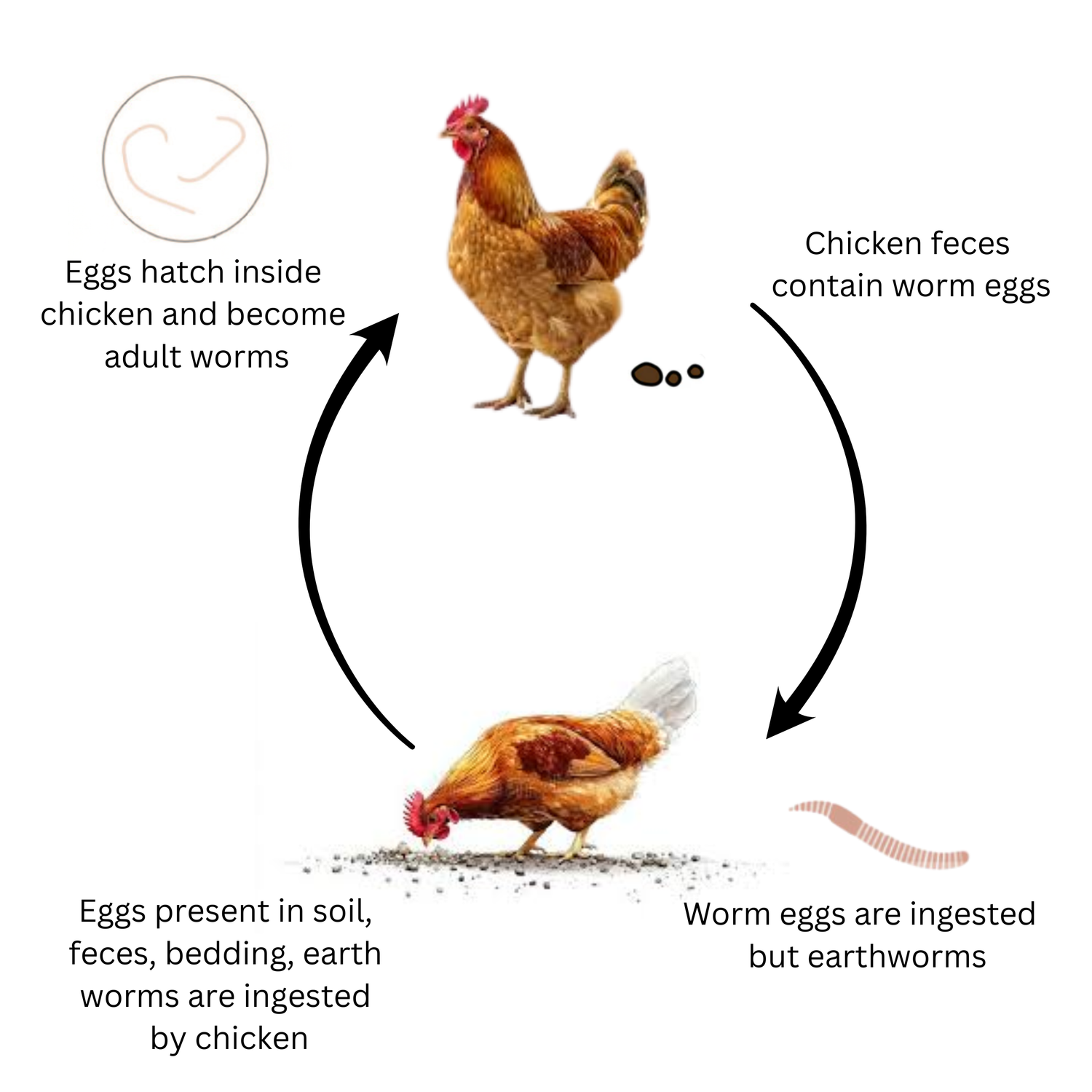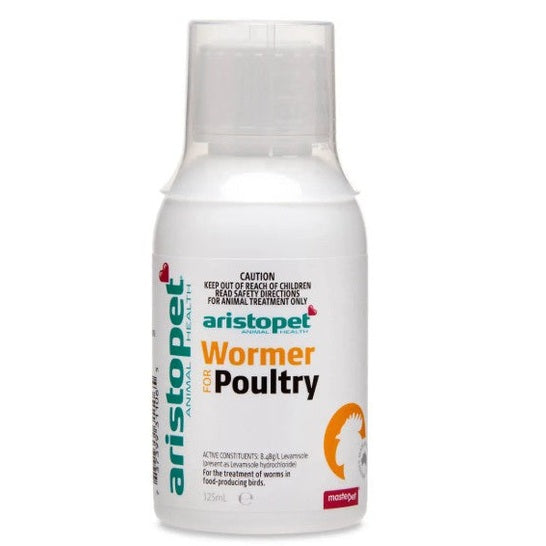
Poultry Worming
Discover our range of poultry parastive preventatives

Poultry Worming: Why It Matters and How to Do It Right
Healthy, happy chickens mean better egg production, stronger growth, and fewer health problems. But one issue that can quietly impact your flock is worms. Internal parasites are common in poultry and, if left untreated, can lead to poor condition, reduced egg laying, and even death in severe cases. Worming your birds regularly is an important part of good flock management.
Worms are a fact of life when keeping chickens, but with regular worming and good husbandry, you can keep your flock healthy and productive. Prevention, observation, and timely treatment are the key steps to managing parasites in poultry.
Poultry Worming: Why It Matters and How to Do It Right
-
Why Worming Is Important?
Worms live inside the gut of your chickens, competing for nutrients and irritating the digestive system.
Common poultry worms include:
- Roundworms – can cause weight loss and poor egg production.
- Hairworms/Capillaria – damage the intestinal lining, leading to diarrhoea.
- Gapeworms – live in the throat and can cause difficulty breathing.
- Tapeworms – harder to treat and reduce overall bird health.
-
Signs Your Poultry May Have Worms
Worm infestations can be tricky to spot, but some tell-tale signs include:
- Weight loss or poor body condition despite eating well
- Pale combs and wattles
- Diarrhoea or dirty vent feathers
- Drop in egg production
- Birds looking generally unwell or lethargic
-
How Often Should You Worm Chickens?
The need for worming depends on your setup:
Free-range flocks may need worming more often, as they’re exposed to soil where worm eggs can build up.
Confined flocks on clean bedding may not need treatment as frequently.
As a general rule, many backyard keepers worm every 3–6 months.
Regular faecal egg counts can help determine if your flock needs treatment more or less often. Contact Cameron Veterinary Services.
Everything You Need For Poultry Parasite Treatment and Prevention
-
COCCIPROL 100G
Regular price $28.40 AUDRegular price -
VETSENSE KILVERN PIG AND POULTRY WORMER 500ML
Regular price $26.15 AUDRegular price -
INCA PESTENE POWDER 500g
Regular price $32.29 AUDRegular price -
BAINBRIDGE POULTRY WORMER
Regular price From $15.95 AUDRegular price

Tips to Reduce Worm Burden Naturally
Worming medication is important, but prevention plays a big role too. You can reduce worm problems by:
- Rotating pasture or runs to prevent worm egg build-up in the soil
- Keeping bedding clean and dry
- Regularly cleaning feeders and drinkers
- Avoiding overcrowding
- Offering a balanced diet to keep birds’ immune systems strong
Aristopet
ARISTOPET POULTRY WORMER 125ML
Share

 is here! Shop now, pay later in 4 easy installments
is here! Shop now, pay later in 4 easy installments




